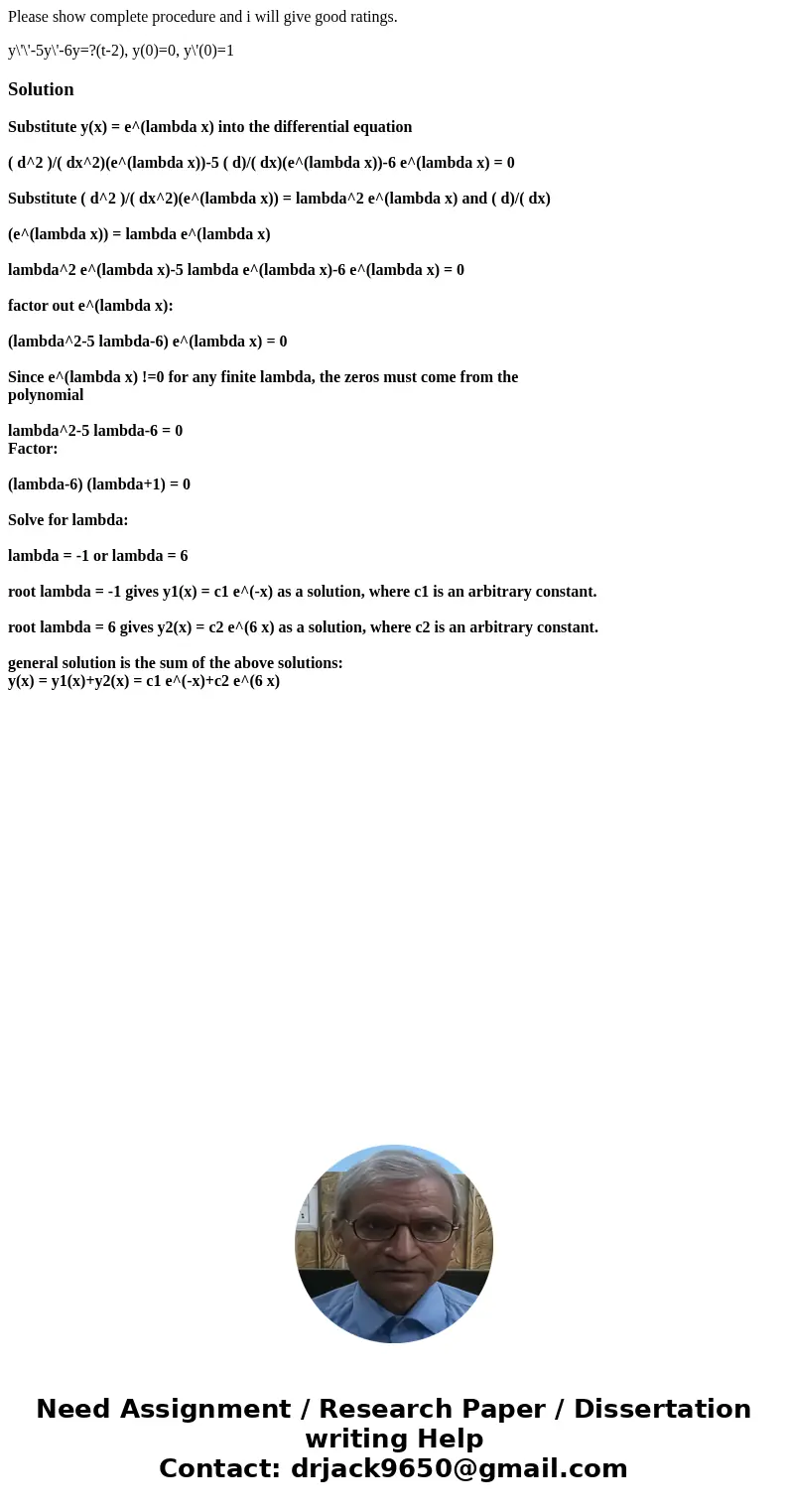Please show complete procedure and i will give good ratings
Please show complete procedure and i will give good ratings.
y\'\'-5y\'-6y=?(t-2), y(0)=0, y\'(0)=1
Solution
Substitute y(x) = e^(lambda x) into the differential equation
( d^2 )/( dx^2)(e^(lambda x))-5 ( d)/( dx)(e^(lambda x))-6 e^(lambda x) = 0
Substitute ( d^2 )/( dx^2)(e^(lambda x)) = lambda^2 e^(lambda x) and ( d)/( dx)
(e^(lambda x)) = lambda e^(lambda x)
lambda^2 e^(lambda x)-5 lambda e^(lambda x)-6 e^(lambda x) = 0
factor out e^(lambda x):
(lambda^2-5 lambda-6) e^(lambda x) = 0
Since e^(lambda x) !=0 for any finite lambda, the zeros must come from the
polynomial
lambda^2-5 lambda-6 = 0
Factor:
(lambda-6) (lambda+1) = 0
Solve for lambda:
lambda = -1 or lambda = 6
root lambda = -1 gives y1(x) = c1 e^(-x) as a solution, where c1 is an arbitrary constant.
root lambda = 6 gives y2(x) = c2 e^(6 x) as a solution, where c2 is an arbitrary constant.
general solution is the sum of the above solutions:
y(x) = y1(x)+y2(x) = c1 e^(-x)+c2 e^(6 x)

 Homework Sourse
Homework Sourse